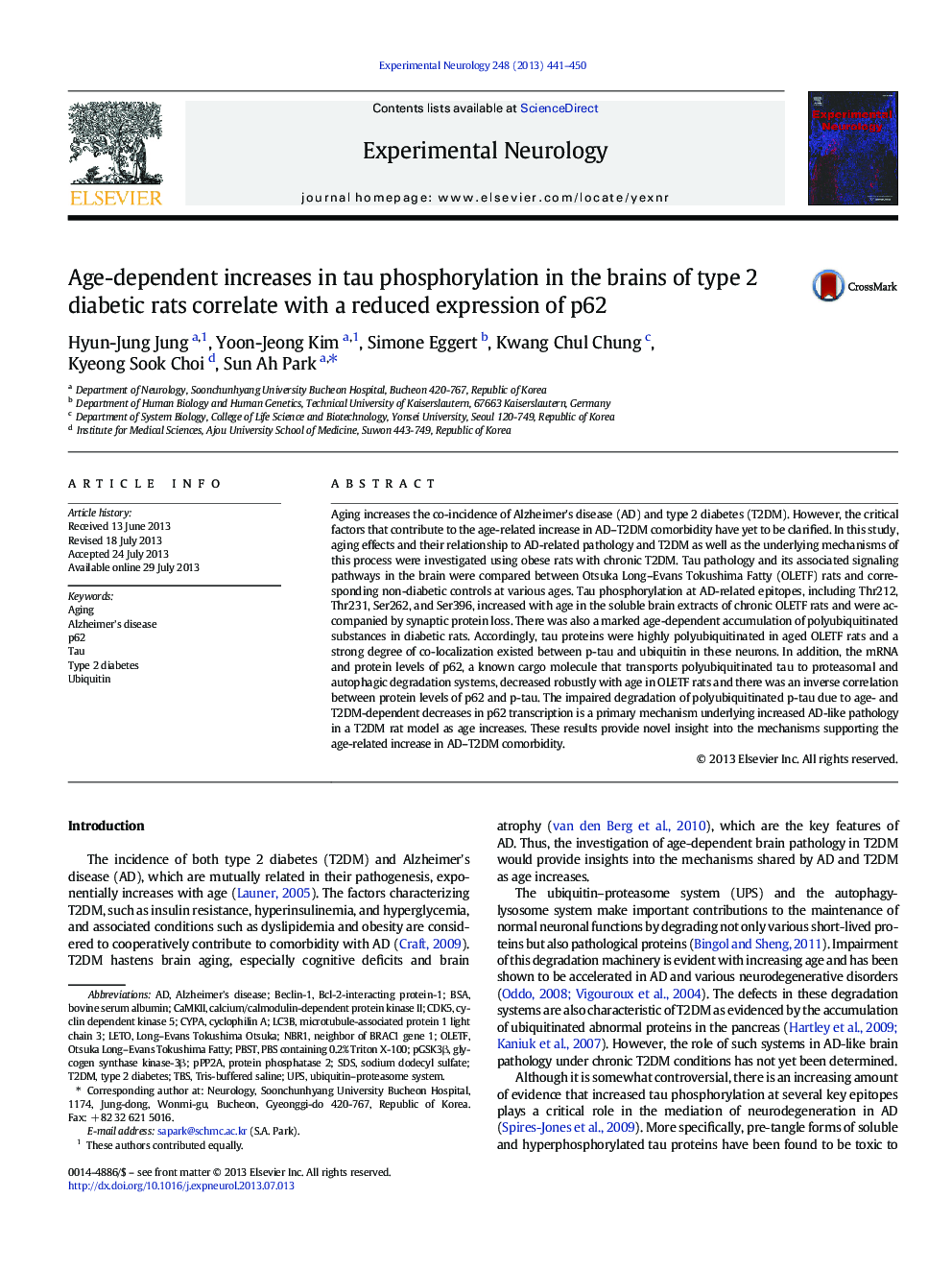| کد مقاله | کد نشریه | سال انتشار | مقاله انگلیسی | نسخه تمام متن |
|---|---|---|---|---|
| 6018124 | 1580184 | 2013 | 10 صفحه PDF | دانلود رایگان |

- Increased p-tau levels and synaptic loss in T2DM rats became more evident with age.
- Polyubiquitinated substrates were greatly accumulated with age in T2DM rats.
- Polyubiquitinated form of p-tau was highly increased in old T2DM rats.
- Protein and mRNA levels of p62 were profoundly decreased with age in T2DM rats.
- The decline in p62 protein levels was well correlated with the rise in p-tau levels.
Aging increases the co-incidence of Alzheimer's disease (AD) and type 2 diabetes (T2DM). However, the critical factors that contribute to the age-related increase in AD-T2DM comorbidity have yet to be clarified. In this study, aging effects and their relationship to AD-related pathology and T2DM as well as the underlying mechanisms of this process were investigated using obese rats with chronic T2DM. Tau pathology and its associated signaling pathways in the brain were compared between Otsuka Long-Evans Tokushima Fatty (OLETF) rats and corresponding non-diabetic controls at various ages. Tau phosphorylation at AD-related epitopes, including Thr212, Thr231, Ser262, and Ser396, increased with age in the soluble brain extracts of chronic OLETF rats and were accompanied by synaptic protein loss. There was also a marked age-dependent accumulation of polyubiquitinated substances in diabetic rats. Accordingly, tau proteins were highly polyubiquitinated in aged OLETF rats and a strong degree of co-localization existed between p-tau and ubiquitin in these neurons. In addition, the mRNA and protein levels of p62, a known cargo molecule that transports polyubiquitinated tau to proteasomal and autophagic degradation systems, decreased robustly with age in OLETF rats and there was an inverse correlation between protein levels of p62 and p-tau. The impaired degradation of polyubiquitinated p-tau due to age- and T2DM-dependent decreases in p62 transcription is a primary mechanism underlying increased AD-like pathology in a T2DM rat model as age increases. These results provide novel insight into the mechanisms supporting the age-related increase in AD-T2DM comorbidity.
Journal: Experimental Neurology - Volume 248, October 2013, Pages 441-450